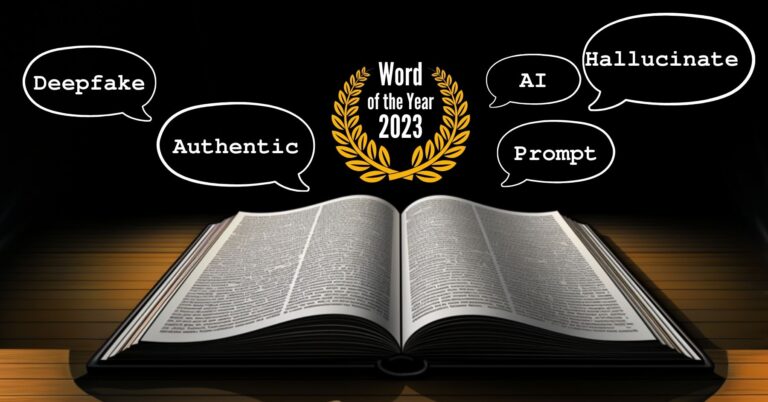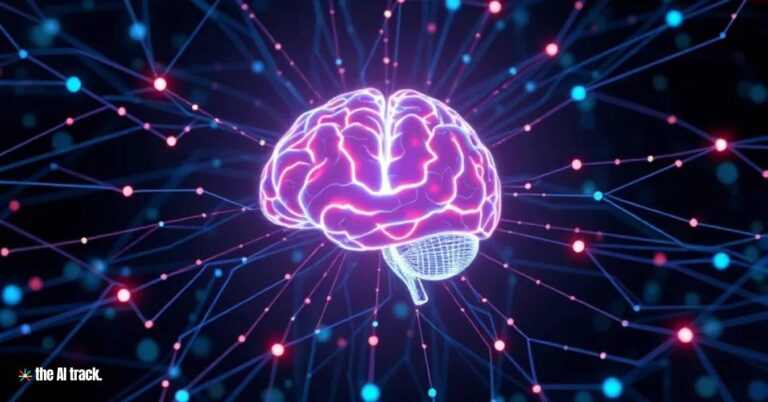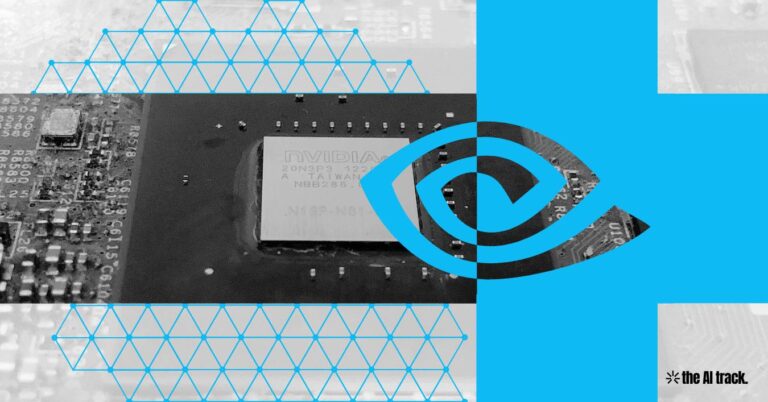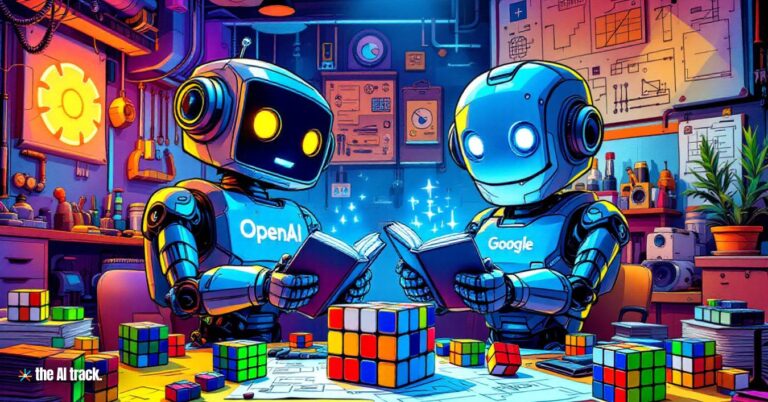AI Words have notably reshaped our language landscape in 2023, reflecting the pervasive influence of artificial intelligence in our daily lives. This year, major dictionaries have acknowledged this transformation by incorporating AI-related terms into their prestigious ‘word of the year’ lists. Here’s a breakdown of how AI has redefined our lexicon:

2023: The Year AI Words Dominated Dictionaries – Key Points
- ‘Hallucinate’ – Cambridge’s Word of the Year: Cambridge Dictionary’s Word of the Year is ‘hallucinate’, now extended to describe AI’s tendency to fabricate information. This term traditionally associated with human perception, now aptly applies to AI systems like ChatGPT when they produce erroneous data. This expansion in meaning is a testament to AI’s growing impact on language and thought.
- ‘Authentic’ – Merriam-Webster’s Word of the Year: Merriam-Webster chose ‘authentic’, underscoring the challenge of distinguishing real from fake in the age of AI. The word hasn’t changed in definition but has gained a new connotation amidst the rise of deepfake technology. This reflects the complexities introduced by AI in understanding authenticity.
- ‘AI’ – Collins’ Word of the Year: ‘AI’ was chosen as the Word of the Year by Collins Dictionary. It signifies the colossal technological revolution AI has brought, redefining the term beyond its original technical scope.
- ‘Deepfake’ – Cambridge’s Shortlist: The term ‘deepfake’ itself has evolved from a niche technology to a widely recognized term, illustrating the widespread influence of generative AI.
- ‘Prompt’ – Oxford’s Finalists: Oxford’s Word of the Year, ‘rizz’, may not be AI-related, but ‘prompt’ emerged as a significant runner-up. The term ‘prompt’ in AI contexts refers to instructions guiding AI programs, mirroring the increasing interaction between humans and AI systems.
- ‘LLM,’ ‘GenAI,’ ‘GPT’ – New Entries in Cambridge Dictionary: Cambridge Dictionary also added significant AI-related terms such as ‘large language model’ (LLM), ‘generative AI’ (GenAI), and ‘GPT’ (Generative Pre-trained Transformer), indicating the expanding vocabulary surrounding AI technologies.
These selections highlight a crucial aspect of AI Words: they are not just about the technology itself but also about its broader implications in society. AI’s presence in our dictionaries is a clear indicator of its deepening integration into various facets of our lives, from legal to creative fields.
- Practical Implications of AI Vocabulary: The term ‘hallucinate’ gained prominence in legal contexts, for example, where AI-driven research led to citations of fictitious cases.
- The Importance of Human Oversight in AI: The evolution of these AI Words underscores the critical role of human expertise in guiding and managing AI tools.
In 2023, AI Words have not just made their way into our dictionaries; they have begun to redefine our interaction with technology and language. As AI continues to intertwine with various aspects of life, this evolving vocabulary will play a crucial role in shaping our understanding and use of these advanced systems.
“In addition to understanding the evolving landscape of AI Words, it’s crucial to have a resource for deeper exploration and clarity. Enter ‘The Absolutely Necessary AI Dictionary: The AI Track Dictionary‘. This comprehensive resource is tailored for anyone eager to deepen their understanding of artificial intelligence. It meticulously defines all fundamental AI terms, providing both Formal Definitions for technical precision and Plain Language Definitions for ease of comprehension. Enhanced with practical examples and detailed explanations, our dictionary demystifies complex AI concepts, making them accessible to a wide audience.






